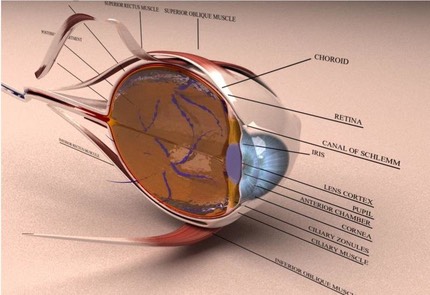In March we visited the Surgeon’s Hall Museum in Edinburgh. We didn’t spend as long there as we might as one member of the party felt a bit queasy with all the parts of human anatomy in jars and the like.
I was particularly interested by a very large model of the human eye. (I didn’t think to take a photograph at the time and have not been able to find one online but so I have included a different one.) The model underlined just how incredible and complex the human eye is.

When I was an undergraduate, in 1980 I think, the college held a series of lectures by staff with a title something like Approaching the Millennium. Two talks stood out for me, one by one of the fellows of practical science about whether we should take extra salt. He ran through some of the scientific papers and evidence in an interesting way, pointing out the inconsistencies and concluded that if you like extra salt on your food you should take it.
The other talk was by Dr Richard Dawkins, who had become a theoretical scientist. He soke about the human eye and set out to explain how it might have evolved over millions of years. This was long before I had come across the term “irreducible complexity”. But I was aware that one of his students in my year disagreed strongly with Dawkins. Another, after a couple of years studying under Dawkins also became convinced the Darwinism and neo-Darwinism go against the clear evidence.
What struck me was that Dawkin’s explanation sounded more like a just-so story. He was arguing that the eye exists, it is complex, but it must have evolved, so here is how that probably happened. One obvious problem was that he argued that one of our early long-pre-human ancestors developed a sensitive part of the skin and this gave the being an advantage over others in avoiding risks or finding good things. Over time continually recuring process turned into an incredibly complex eye. But the eye is one of the most vulnerable points in the body. By similar logic to what he claimed was an advantage, having such a sensitive area would create greater danger and therefore would be selected out with the passage of time.
For me, it was about a decade later, after studying theology and discovering how much of scholarly opinions about the Bible are not credible, and known by many who teach them to be problematic, that I started exploring creationist views. I became convinced, as friends who had studied under Dawkins had been, that the Bible stands up to honest scientific study far better than views like Darwinism and neo-Darwinism.
Visited 24 March 2025